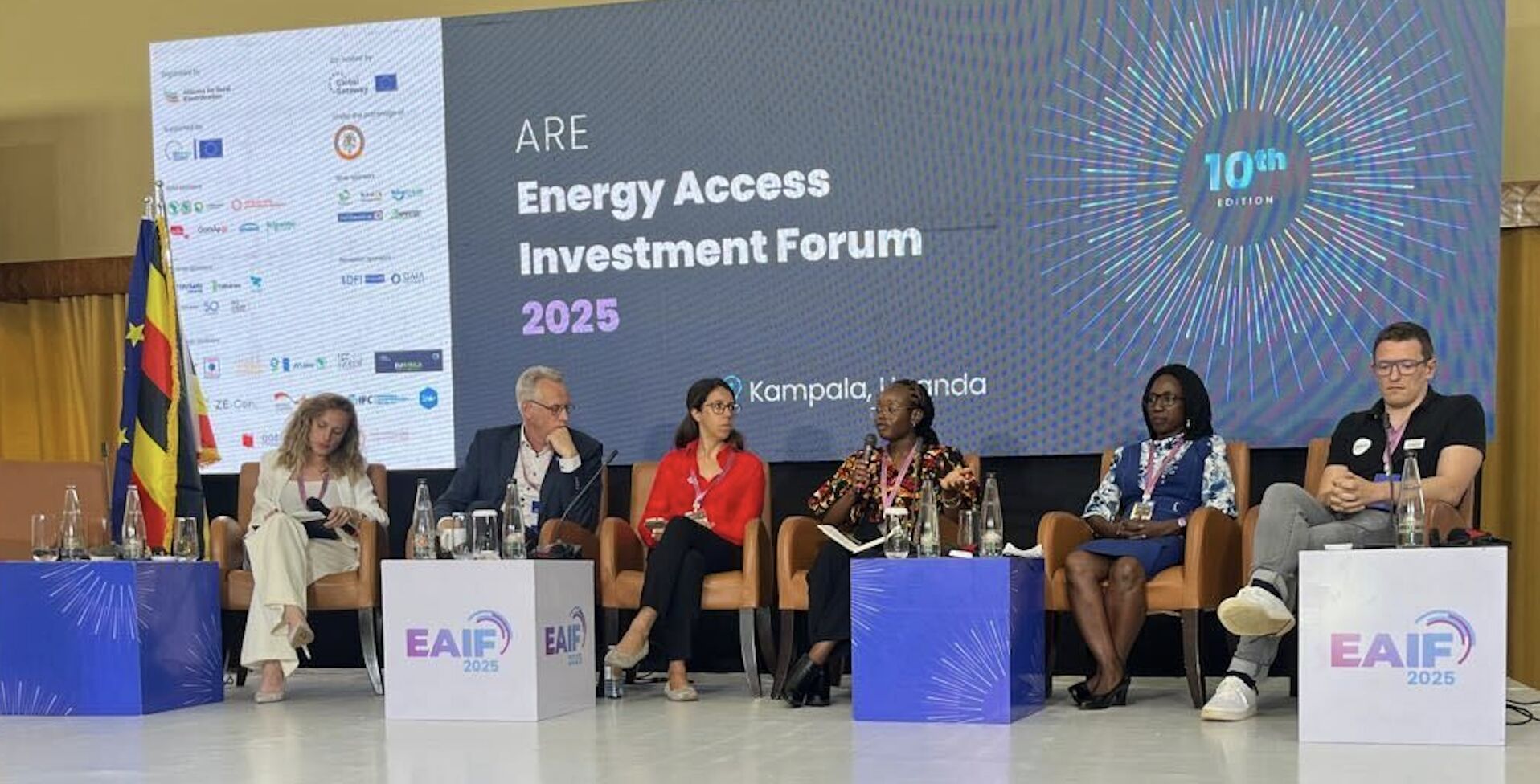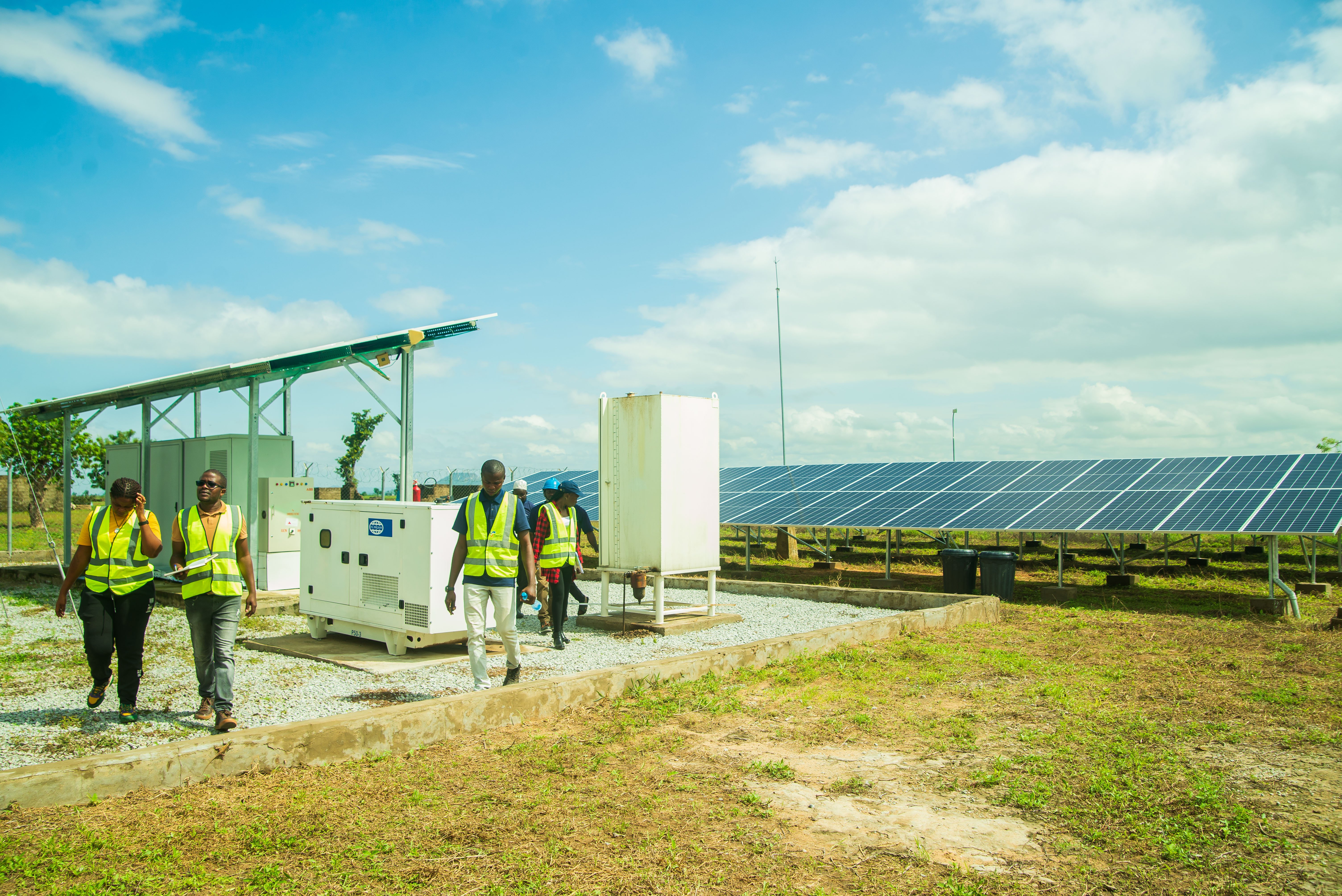
CrossBoundary Access on trends to watch in Africa’s mini-grid financing sector
Senior Investment Associate, Terry Otinga, recently participated in a panel at the Alliance for Rural Electrification's 10th Energy Access Investment Forum. Drawing from our work financing mini-grids across rural Africa, she shares 3 key trends the team has observed.
Senior Investment Associate, Terry Otinga, recently participated in a panel at the Alliance for Rural Electrification's 10th Energy Access Investment Forum. Drawing from our work financing mini-grids across rural Africa, she shares 3 key trends the team has observed.
Blended finance creates commercial pathways
Terry: In my experience, our sector still struggles with a fundamental risk-return imbalance—the returns simply aren’t high enough to justify the risks associated with energy access projects in Africa. At CrossBoundary Access, we’ve found that strategically combining concessional and commercial capital helps to offset this imbalance, effectively de-risking investments while keeping power affordable for rural communities.
This blended approach has proven crucial in opening markets that traditional investors might otherwise overlook, creating sustainable pathways for capital to flow into rural electrification projects.
Well-designed results-based financing (RBF) programs drive private sector engagement

Terry Otinga, Investment Associate, CrossBoundary Access
In our work across different African markets, we’ve witnessed strong investor interest where solid RBF programs exist, while seeing minimal traction in regions where programs were either too complex or too small to meaningfully influence the market. During our panel, Ulrich Zimmermann from Zimpertec made an excellent point that “while RBF is an excellent tool for improving energy access and after-sales service, initial financing is crucial for including SMEs in these initiatives.” I couldn’t agree more—addressing the full financing spectrum is essential for building an inclusive energy ecosystem.
Incentive alignment drives long-term sustainability
Perhaps the most challenging aspect of our work is navigating the often conflicting priorities of various stakeholders. Regulators, developers, investors, donors, and customers frequently have divergent interests around quality, affordability, project returns, and development impact.
I believe our sector’s long-term success depends on finding creative ways to align these interests so that everyone pulls in the same direction. At CrossBoundary Access, we’re constantly working to structure deals that balance these competing priorities, creating sustainable solutions that work for all parties involved.
About the Energy Access Investment Forum
The ARE Energy Access Investment Forum (EAIF) is the top annual investment event for the renewable electrification sector, fostering business and investor partnerships for the purpose of sustainable electricity access, decarbonization, economic growth, and fighting against climate change.
EAIF 2025 was organized by the Alliance for Rural Electrification, supported by GET.invest, a European program that mobilizes investments in renewable energy. GET.invest is co-funded by the European Union, Germany, Norway, the Netherlands, Sweden, and Austria.
This special 10-year edition brought together over 500 in-person participants from around the globe, including private and public investors, industry leaders, and government officials, for an exclusive experience in Kampala, Uganda.



